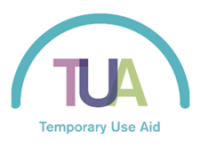Two-thirds of charities advocate against the business rates avoidance practices followed by landlords and property agents
A new survey by charity Temporary Use Aid, in partnership with a national campaign advocating for fair property practices, has revealed the charity sector's pressing needs, with 73% reporting significant difficulties in finding operational space.
The survey gathered insights from over 200 charitable organisations, volunteer groups, and social enterprises, addressing key challenges including finance and space acquisition.
Finding and securing areas to work from was cited by the respondents as their second biggest concern, behind funding. This is, in part, because charities today are becoming increasingly reliant on private landlords. With some property owners today finding it difficult to rent out their properties, due to their liability to pay business rates, they may choose to avoid paying business rates by ‘box shifting'. This is a practice where commercial properties are left unoccupied for a certain period of time to claim empty rates relief, before ‘reoccupying' it with boxes or other furniture, triggering a reset on empty rates relief and allowing them to restart the cycle. This is not only highly detrimental to charities, denying them access to commercial spaces otherwise left empty, but the loss of rates revenue to councils has led to service cuts, pushing many closer to bankruptcy, as seen with Birmingham City Council.
The survey also found that charities need locations to operate from for long periods of time, with nearly half of respondents saying they needed a space to occupy for at least two years. Properties occupied by charities are eligible for charitable rates relief, which gives ratepayers 80% relief on business rates. By working with charities, property owners can save more on business rates, more quickly than they would through ‘box shifting', while charities benefit from temporary residence. By working together, this provides key support for vulnerable residents.
The survey follows the Treasury and Department of Levelling Up Housing and Communities' changes to extend the reset period of Empty Property Relief (EPR) from six to thirteen weeks on 1 April 2024, acknowledging the exploitation of empty rates relief and disincentivising leaving properties empty.
These survey results underscore the wider charity sector's concerns and contribute to a broader understanding of the sector's needs. Temporary Use Aid is helping charities safely find vacant rent-free retail, office and warehouse space, and this survey demonstrates its dedication to advocating fairer practices and support for these vital community initiatives, combatting the unethical practice of business rates avoidance.
Shaylesh Patel, Founder of Temporary Use Aid, said: "We are pleased to see such an engaged response to our survey. The results prove that finding space is one of the biggest and critical issues that charities face today, and instead of committing rates avoidance, landlords should be partnering with charities to get charitable rates relief, while charities are able to secure a space to operate from. It is a win-win for both charities and landlords, while helping local communities access important services and advice. Although the expected reduction in planning bureaucracy will help accelerate the conversion of empty commercial spaces into much needed housing, this may further add to the affordable space pressure faced by the charity sector. Time will tell.
"However, it is important to remember that no sector is exempt from exploitation, and there is potential for landlords and multi-chain operators to exploit the presence of charities to dodge taxes. This is why we are calling for a limit on claiming charity empty rates relief for more than four weeks following being let.
"We extend our gratitude to all participants for their valuable input and look forward to using these responses to significantly inform our future advocacy efforts and drive meaningful change."
Bassam Mahfouz, Labour Assembly Member for Ealing and Hillingdon said: "The new Labour government has pledged to revamp business rates and end the blight of empty premises. Alongside other key measures, these will provide an opportunity to positively transform our high streets. As part of these measures, we need to ensure that we end the legacy of businesses using current loopholes such as box shifting to avoid paying business rates, which harm our communities and local charities."
Domestic abuse support and shelter charity STORM's ambassador Will Poulter said: "We welcome the findings of Temporary Use Aid's Charity Pain Points survey, which highlight the increasingly pressing concerns facing the charity sector, including the bleak ongoing struggle to simply secure operational space. By mobilising legislative changes, we can ensure a fairer system for the charitable organisations that rely on these spaces, and most importantly, ensure those in need are able to receive assistance from local services, particularly during a cost-of-living crisis."
For further information visit Temporary Use Aid






